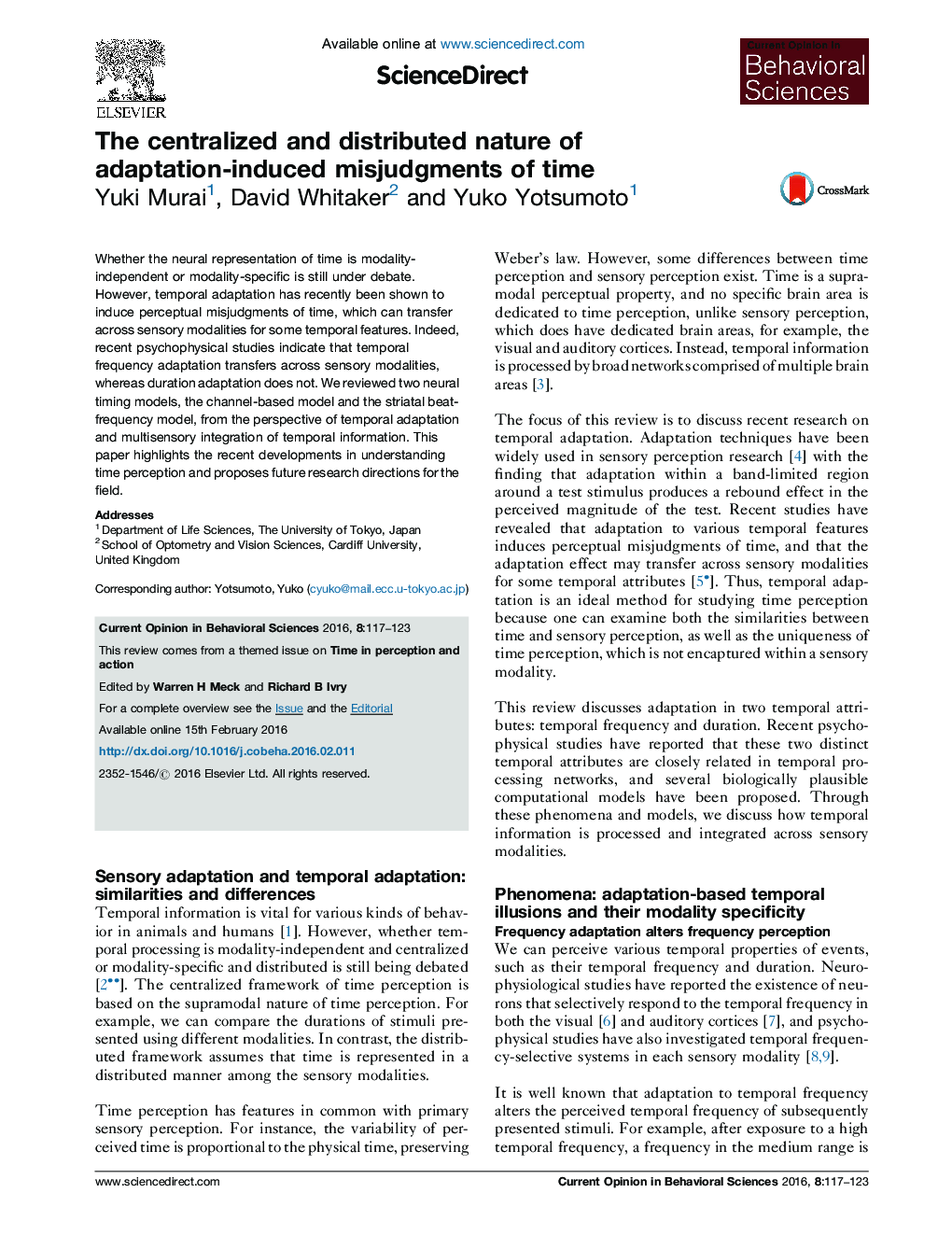| کد مقاله | کد نشریه | سال انتشار | مقاله انگلیسی | نسخه تمام متن |
|---|---|---|---|---|
| 6260499 | 1613082 | 2016 | 7 صفحه PDF | دانلود رایگان |
- Adaptation to temporal features induces perceptual misjudgments of time.
- Temporal adaptation reveals sensory modality dependence of time perception.
- Frequency adaptation transfers across modalities while duration adaptation does not.
- Channel-based model describes selective aftereffect to the adapted frequency or duration.
- SBF model can explain integration of temporal information across sensory modalities.
Whether the neural representation of time is modality-independent or modality-specific is still under debate. However, temporal adaptation has recently been shown to induce perceptual misjudgments of time, which can transfer across sensory modalities for some temporal features. Indeed, recent psychophysical studies indicate that temporal frequency adaptation transfers across sensory modalities, whereas duration adaptation does not. We reviewed two neural timing models, the channel-based model and the striatal beat-frequency model, from the perspective of temporal adaptation and multisensory integration of temporal information. This paper highlights the recent developments in understanding time perception and proposes future research directions for the field.
Journal: Current Opinion in Behavioral Sciences - Volume 8, April 2016, Pages 117-123
